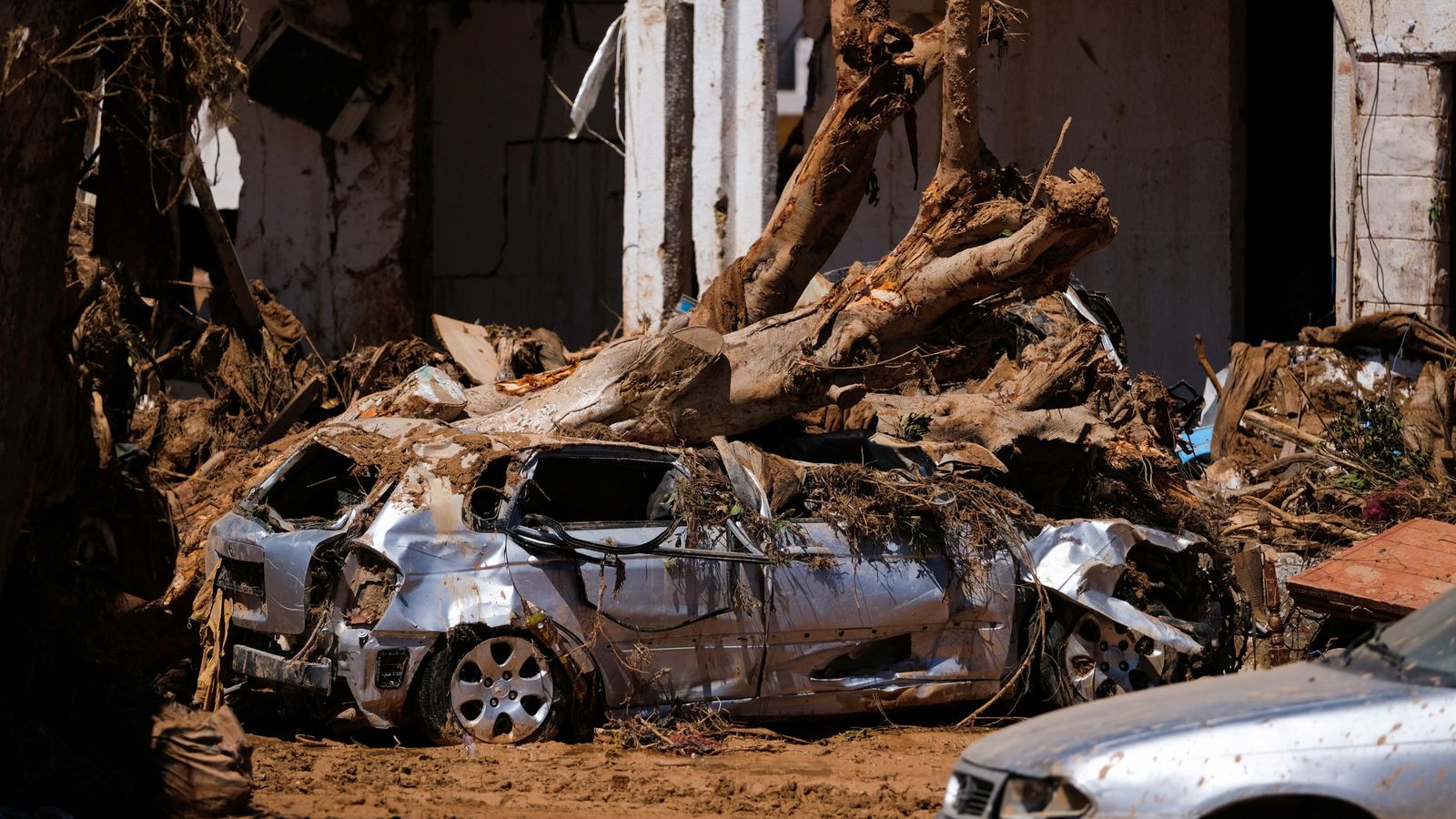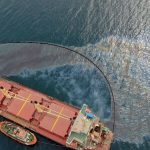The number of deaths in the Libyan city of Derna could range from 18,000 to 20,000 following catastrophic flooding, according to the city’s mayor.
Abdulmenam Al-Ghaithi told al-Arabiya TV today this could be based on the number of wiped-out districts in the city.
It came as the King sent a letter of condolence to the chairman of the Libyan Presidential Council, Mohamed al-Menfi.
The message read: “My wife and I are so desperately saddened by the devastating impact and loss of life caused by Storm Daniel and the subsequent floods.
“We mourn with all those who have lost their loved ones, and continue to pray for everyone whose lives and livelihoods have been affected by the horrific floods.
“I admire greatly all those who are engaged tirelessly in the rescue efforts in such dire conditions, and praise their selfless bravery.”
Earlier on Wednesday, the UK government announced an initial aid package worth up to £1m to meet the immediate needs of those affected by the catastrophic flooding in Derna.
Prime Minister Rishi Sunak said in a tweet it is “shocking to see the scale of the loss and devastation caused by the floods in Libya”, adding that the UK is “working to provide immediate assistance to the Libyan people”.
Libyan officials appealed for international help on Monday, warning the country doesn’t have the necessary experience to deal with a disaster of this scale.
What caused flooding in Libya?
At least 30,000 people have been displaced in Derna, with health officials saying on Wednesday that the number of deaths in the city had risen to more than 5,100 – while a minister has said 5,300 bodies in the country’s east had been recovered.
Search teams have been combing streets, wrecked buildings and even the sea to look for bodies in the coastal Libyan city where the collapse of two dams unleashed a massive flash flood.
Storm Daniel caused significant damage to roads and telecoms networks on Sunday – with strong winds and sudden heavy rainfall devastating the port city of Derna – about 560 miles (900km) east of the capital, Tripoli.
The “sea is constantly dumping dozens of bodies”, Hichem Abu Chkiouat, minister of civil aviation in the administration that runs eastern Libya, said, adding that reconstruction would cost billions of dollars.
“We have counted more than 5,300 dead so far, and the number is likely to increase significantly and may even double because the number of missing people is also thousands,” he said.
Footage of one man, described by the charity Libyan Red Crescent Society as a grieving father, showed his distress as his son’s body was recovered from a collapsed building and prepared for transportation.
Please use Chrome browser for a more accessible video player
“May God make your reward great. Remember God. There is no God but God. May God grant you patience,” one of the rescuers said.
The father replied: “Keep them there, don’t carry them at all. I will do it.”
“Our hearts are with you, we’re all with you,” the rescuer said.
As Storm Daniel pounded the coast on Sunday night, Derna residents said they heard loud explosions when dams outside the city collapsed.
Read more:
Libya flood: Before and after pictures show devastation
What caused sheer scale of death and destruction in eastern city of Derna?
Floodwaters washed down the riverbed, which runs from the mountains through the city and into the sea.
Waves measuring seven metres (23ft) high “destroyed everything in their path”, Yann Fridez, head of the delegation of the International Committee for The Red Cross in Libya, told France24.
“The human toll is enormous,” he said.
Ahmed Abdalla, a survivor who joined the search and rescue effort, said they were putting bodies in the garden of a local hospital before taking them for burial in mass graves at the city’s only intact cemetery.
Libya’s neighbours, Egypt, Algeria and Tunisia, as well as Turkey and the United Arab Emirates, have sent rescue teams and humanitarian aid.
President Joe Biden also said the United States is sending emergency funds to relief organisations and coordinating with the Libyan authorities and the UN to provide additional support.
But the arrival of aid has been hampered due to the destruction of roads leading to the city. Bridges over the river Derna that link the city’s eastern and western parts have also collapsed, according to the UN’s migration agency.






















